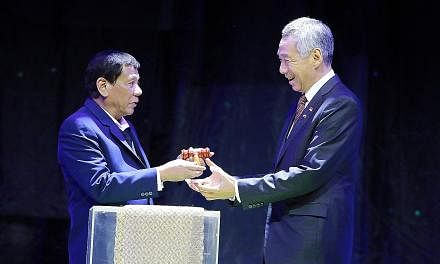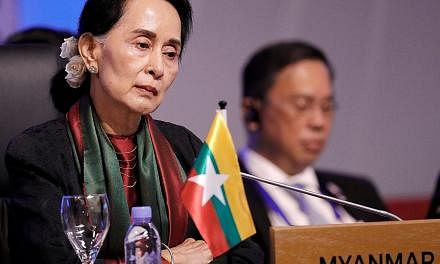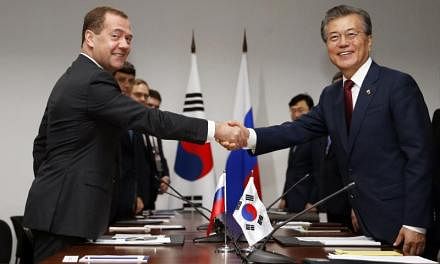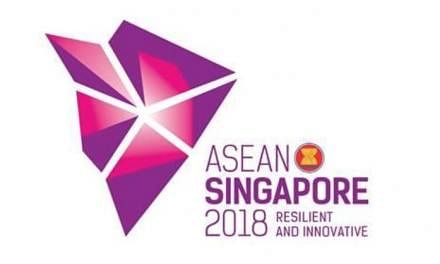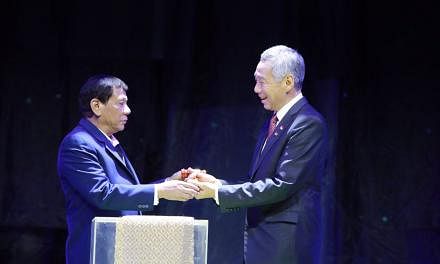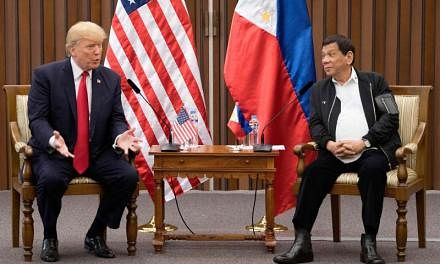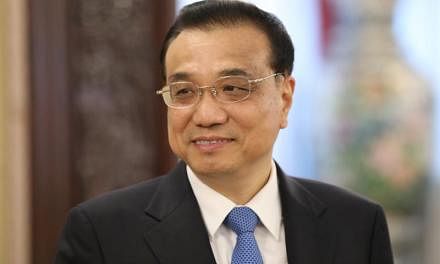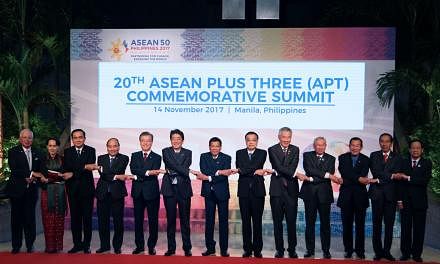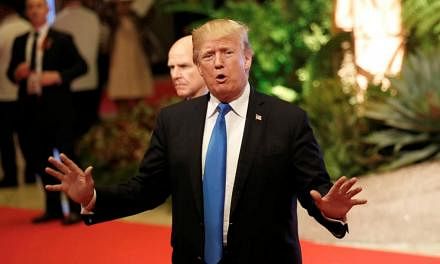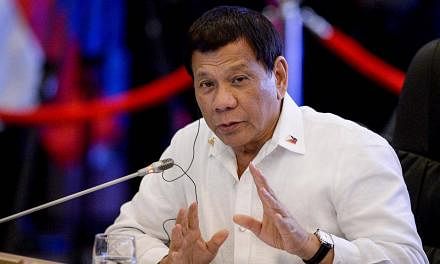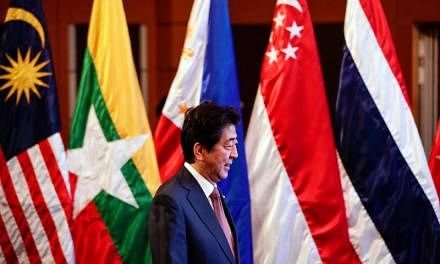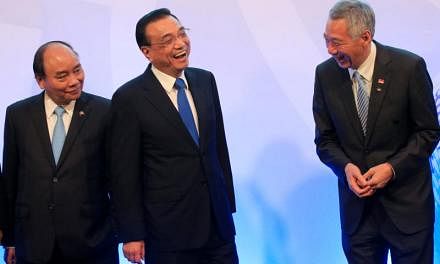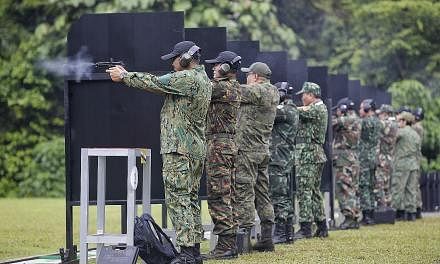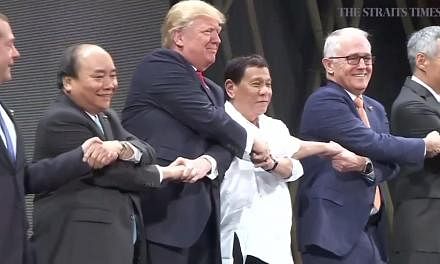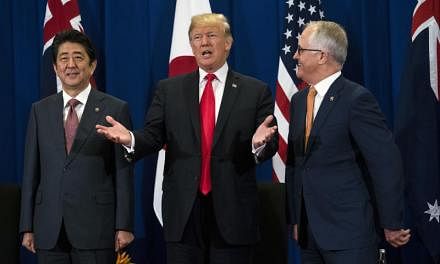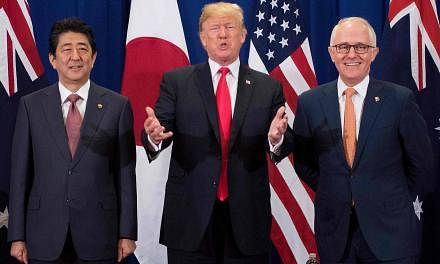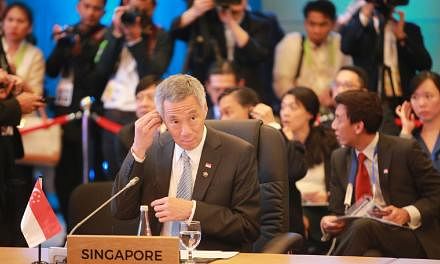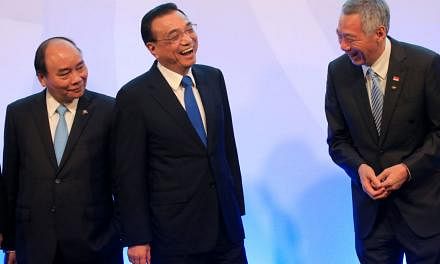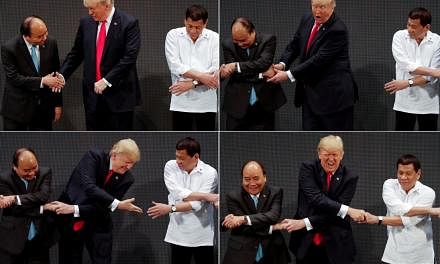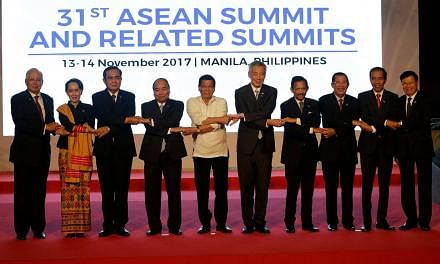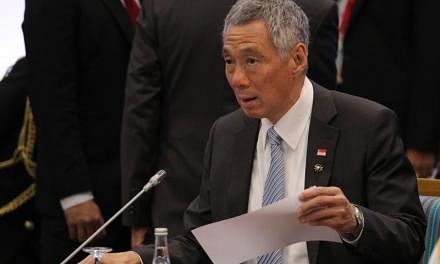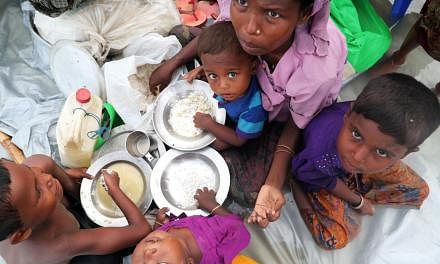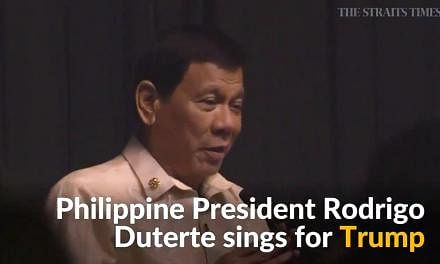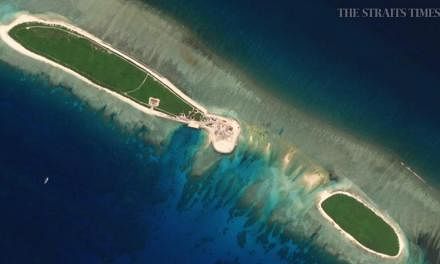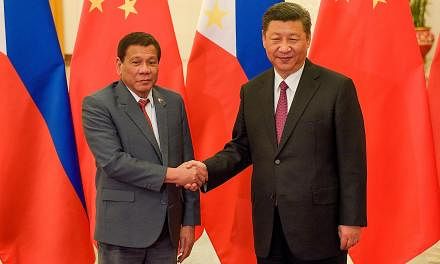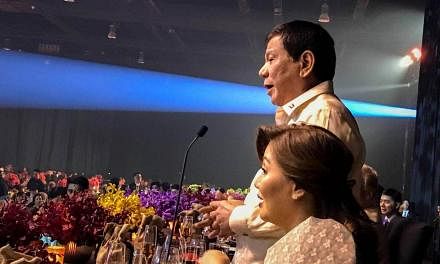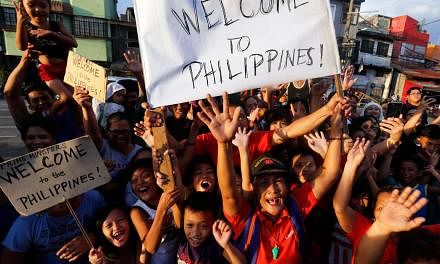MANILA - South-east Asia's leaders opened their summit on Monday (Nov 13), with the South China Sea disputes, North Korea, terrorism, transnational crime, trade, and migrant workers' rights high on their agenda.
In his opening remarks, President Rodrigo Duterte set the tone, as he recalled a five-month-long war between Philippine troops and Islamist extremist groups that seized the southern city of Marawi in May.
"I apologise for setting the tone in such a manner," he said. "But I only want to emphasise that our meetings for the next two days present an excellent opportunity for us to engage in meaningful discussions on matters of regional and international importance."
"Terrorism and violent extremism endanger the peace, stability and security of our region because these threats know no boundaries," he said.
He added that "piracy and armed robbery in the seas put a dent on our growth and disrupt the stability of both regional and global commerce".
Mr Duterte also raised the "menace of the illegal drugs trade" that "continues to endanger the very fabric of our society".
He did not mention the territorial disputes over the South China Sea in his speech. But a draft statement that he is set to deliver on Tuesday as Asean chair reiterates the language used in previous statements.
The draft statement calls for "the peaceful resolution of disputes, including full respect for legal and diplomatic processes, without resorting to the threat or use of force", and mentions "freedom of navigation and overflight" as "cross-cutting maritime issues".
A specific provision on the South China Sea, however, was left blank in the draft.
Mr Duterte said on Saturday that Chinese President Xi Jinping had assured him "safe passage" for all nations when he raised Asean's concerns over China's arms buildup in the South China Sea, through which about US$3 trillion (S$4.08 trillion) worth of goods pass every year.
But on Sunday, he said the issue "is better left untouched", as pressing China would only lead to armed conflicts.
The draft Asean statement also addresses human rights, but it is silent on the plight of the Rohingya in Myanmar's violence-wracked Rakhine state.
More than 430,000 Rohingya have fled the region to Bangladesh after rebel attacks on Myanmar security forces sparked widespread violence, with soldiers teaming up with vigilante mobs to attack civilians and burn entire villages to the ground.
Around 30,000 Hindus and Buddhists d in the area have also been displaced by the fighting.
Philippine Foreign Secretary Alan Cayetano had said the Rohingya issue would be tabled only if Myanmar wanted it discussed.
Malaysia's Foreign Minister Anifah Aman, though, told reporters on Sunday that sending a "peacekeeping force" to Rakhine "is under consideration".
"We may want to propose it. We have experience. But it must also depend on the receiving state, whether the receiving state wants to accept it or not. Whether Myanmar accepts it or
not, this is the crucial thing," he said.
On North Korea, the draft Asean chair's statement reiterates the "grave concern" over Pyongyang's "development of weapons of mass destruction, including nuclear and chemical weapons".


